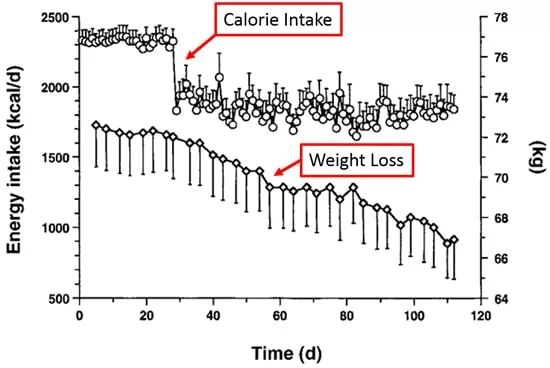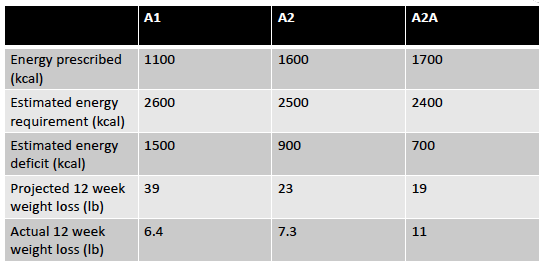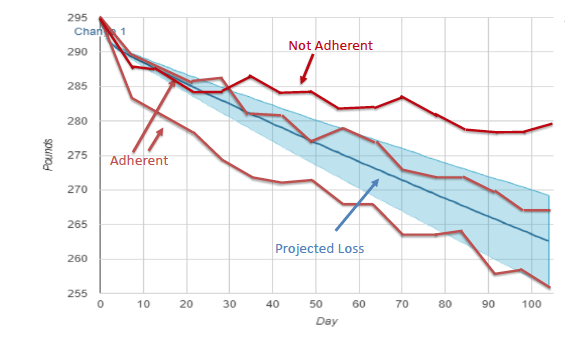The Effects Of The Size Of The Energy Deficit On Adherence
Reducing palatability/reward and therefore the variety of food available will automatically reduce the risk of overeating. This doesn’t mean needing to start following a ‘bro diet’ of chicken and broccoli, but simply reducing your food choice. This will also help you achieve more structure and consistency to your diet, therefore having more control of your calorie intake. Chris Voigt took this to the extreme by only eating potatoes and a small amount of cooking oil for 60 days and lost 21 pounds without trying, without the feeling of being hungry and consciously trying to reduce calories.
Environmental Techniques To Improve Adherence
The best way to improve adherence through your environment is to lower the value of food that you crave and overindulge in. To clarify my point, answer me this ‘How many burgers and fries would you eat if you had to climb a tree every time you needed to get them?’ (Guyenet, The Hungry Brain, 2017)
To conclude, make it more difficult to access foods that are likely to make you less adherent. Here are a few suggestions on how you can improve your food environment to reduce the risk of overindulgence:
- Out of sight
- Locked away
- Requires preparation (less likely to eat it)
Or better still, don’t buy ‘problem’ foods in the first place, if it’s not in the house, you can’t eat it.
Psychological Techniques To Improve Adherence
The reality is that the majority of us know how to lose weight, it’s just having the mindset to do so. Learning about nutrition and finding out what ‘diet’ works best for you is pretty useless if there are certain behavioural patterns that prevent you from executing the diet 100%. As soon as you can establish your behaviours and why you eat the way you do e.g. binging, you can then start to work on implementing strategies to help you improve adherence.
Indicators Of Long-Term Success
The majority have lost weight in the past, and then gained some, if not all, of the weight further down the line. Here are a few questions you need to ask yourself:
- How are you getting on with your current diet?
- Are you able to adhere to it?
- Do you enjoy it?
These are the questions that you need to ask yourself because if you answered no to the first 2 then you will not be in adherent in the long term. The following graph shows a strong correlation between being adherent and the projected weight loss, meaning if you adhere to the diet, you will lose weight. When you stop being adherent, that’s when weight loss starts to slow down and level out which the graph illustrates. The success of a diet in the short term is a great indicator of long-term weight loss.











No Comments yet!